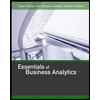Dwight Furniture makes desks specially designed for small spaces, such as studio apartments and extended-stay hotels. Each desk sells for $110 (without chair). The cost of each desk follows: Materials Labor Variable overhead Fixed overhead ($208,000 per month, 13,000 units per month) Total costs per unit $36 41 6 16 $ 99 The local university is building a new dorm and asked Dwight for a special price of $90 for an order of 900 desks. Dwight's can fill the order using existing capacity without affecting total fixed costs for the month. However, because the sale would be to a state agency, Dwight would have to file specified compliance documents with the state purchasing office. Dwight's manager estimates that the time and expenses incurred by this filing will amount to $7,200 and is independent of the number of desks ordered. Dwight's manager is unsure whether to accept this order and wants your advice. Exercise 4-29 (Static) Pricing Decisions and Special Orders (LO 4-1, 2) Required: a. Prepare a schedule to show the impact of providing the special order of 900 desks on Dwight's profits in addition to the regular production and sales of 13,000 desks per month. b. Based solely on the data given, what is the lowest price per unit at which the desks could be sold to the university without reducing Dwight's profits?
Process Costing
Process costing is a sort of operation costing which is employed to determine the value of a product at each process or stage of producing process, applicable where goods produced from a series of continuous operations or procedure.
Job Costing
Job costing is adhesive costs of each and every job involved in the production processes. It is an accounting measure. It is a method which determines the cost of specific jobs, which are performed according to the consumer’s specifications. Job costing is possible only in businesses where the production is done as per the customer’s requirement. For example, some customers order to manufacture furniture as per their needs.
ABC Costing
Cost Accounting is a form of managerial accounting that helps the company in assessing the total variable cost so as to compute the cost of production. Cost accounting is generally used by the management so as to ensure better decision-making. In comparison to financial accounting, cost accounting has to follow a set standard ad can be used flexibly by the management as per their needs. The types of Cost Accounting include – Lean Accounting, Standard Costing, Marginal Costing and Activity Based Costing.
please solve all parts wthin 30 minutes

Trending now
This is a popular solution!
Step by step
Solved in 3 steps




